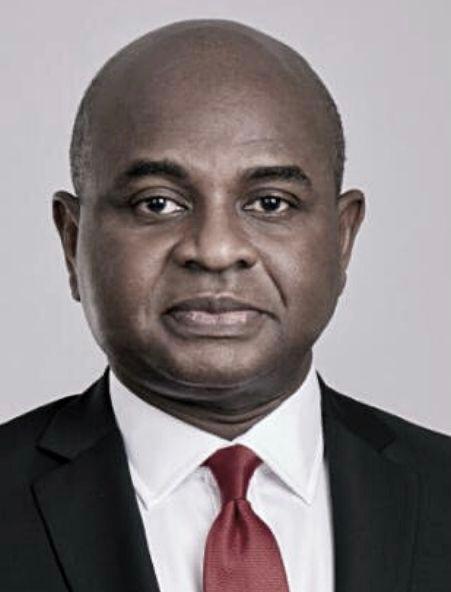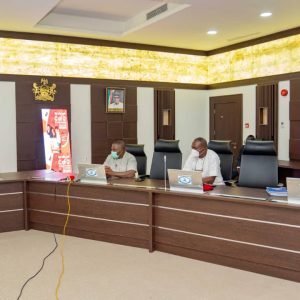Between April 5th and 7th 2021, some of the brightest minds in various fields of intellectual endeavours, gathered in Dubai, United Arab Emirates, for the CyberTech Global event, a leading international exhibition and conference for the tech industry which has helped to shape the direction of world technology and continued to be the aggregator of sublime thoughts on cyber acceleration.

One of the speakers in the star-studded event is Professor Kingsley Moghalu, the former Deputy Governor of the Central Bank of Nigeria. He spoke on the subject, “Financial Technology (FinTech) Security, Digital Trust, And Compliance: An African Emerging Markets.”
This event, the 8th edition, was officially opened by the Crown Prince of UAE on the 5th of April, who commented that “this industry event in Dubai provides an ideal platform to share knowledge and expertise on safeguarding the world’s digital assets.”
The stake was high and Professor Moghalu didn’t disappoint. He spoke on the 6th of April and started by bringing to the fore the fact that “50 percent of 282 mobile money services in the world are operating in Africa”, explaining that the high penetration of mobile telephony, 750 million of a population of 1 billion people, is the reason behind this digital phenomenon.
Professor Moghalu is not oblivious to the dangers that bedevil fintech that is mostly championed by mobile phones. He reiterated the steps the Central Bank of Nigeria, starting from his tenure, took to mitigate this problem and ensure that the customer does not bear the final loss in the case of fraud.
CBN Governor assures that Crypto ban won’t affect Fintech growth
Cryptocurrency was one of the areas the scholar discussed. He mentioned that cryptocurrency has heightened the security challenges in Africa in that the digital currency is attractive to the dark web and its agents.
To combat cybercrime in Africa, there is a need for the education of fintech users and for the private sector and the government to create an environment that is strong enough to fight against internet fraud. “There is also significant opportunity for peer-to-peer exchange of best practices in cybersecurity,” he said.

The highlight of Professor Moghalu’s paper was in his strong forecast that “Fintech will accelerate the continent’s recovery from covid.”
Nigeria is in a pole position to enjoy the gains of fintech (as related to the recovery from the coronavirus-battered economy) as the country’s fintech industry grew by 200% in the last three years ago.
Fintech would come through for Africa.
Other speakers at the in-person event include Yigal Unna, Director General, Israel National Cyber Directorate, Gen. David Petraeus, former Director of the CIA, Adm. Michael S. Rogers, Former Commander, United States Cyber Command, and a host of towering figures.
Connect with us on Twitter













